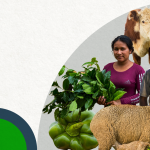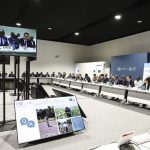Santiago, July 9, 2021.
The Platform for Climate Action in Agriculture in Latin America and the Caribbean, PLACA, held a seminar to disseminate methodologies for agroclimatic risk management and climate change adaptation and mitigation for the agricultural sector.
The meeting, developed jointly with the World Meteorological Organization (WMO) and the CGIAR Research Program on Climate Change, Agriculture and Food Security (CGIAR-CCAFS), was attended by more than 300 participants.
Among the topics highlighted by the experts were the importance of hydrometeorological data systems, a methodology for assessing damage and disaster losses in agriculture, integrated systems for sustainable agriculture adapted to climate change, experiences in planning for climate action, and opportunities for sustainable livestock farming, among others.
The meeting was attended by high-level experts from WMO, FAO, CGIAR-CCAFS, as well as representatives of the ministries of agriculture that are members of PLACA.
What is PLACA?
PLACA is a regional mechanism for voluntary collaboration between countries on agriculture and climate change, which seeks to generate a space for the exchange of knowledge, technologies and collaborative practices in agriculture to support the implementation of national policies for climate change.
Argentina, Bahamas, Brazil, Chile, Costa Rica, Dominican Republic, Guatemala, Mexico, Peru, Uruguay and the Dominican Republic are PLACA member countries.
Food and Agriculture Organization of the United Nations (FAO) and the Economic Commission for Latin America and the Caribbean (ECLAC) provide support as secretariat of the Platform.



